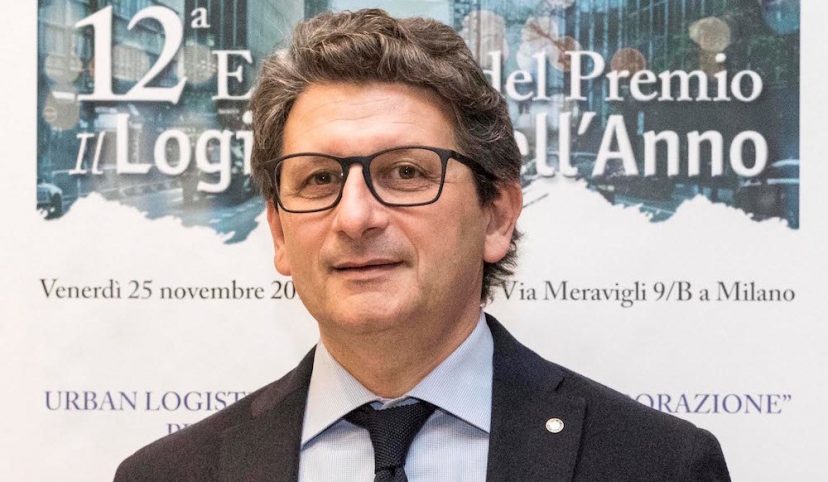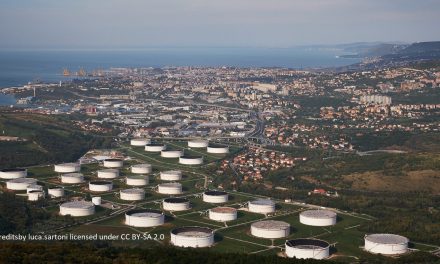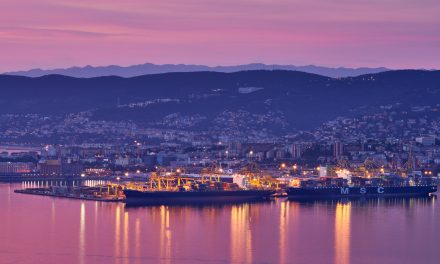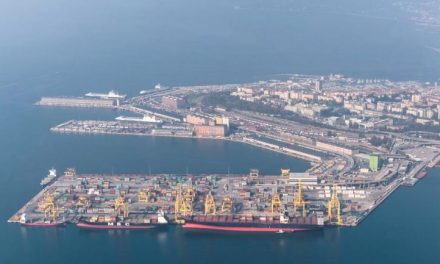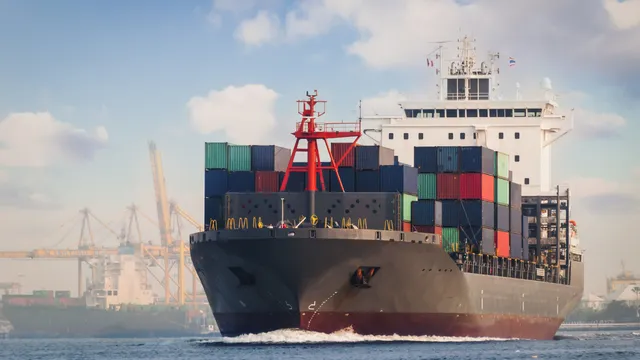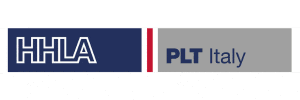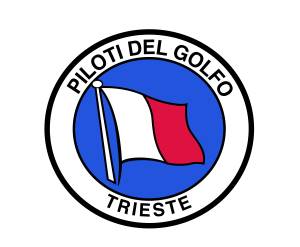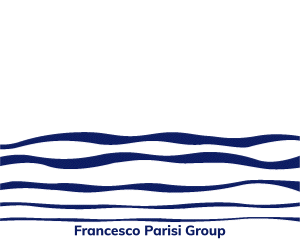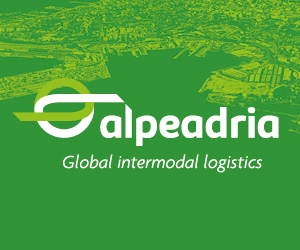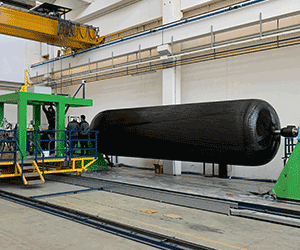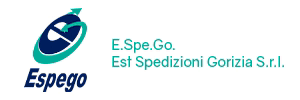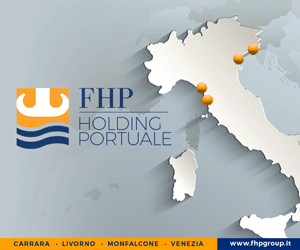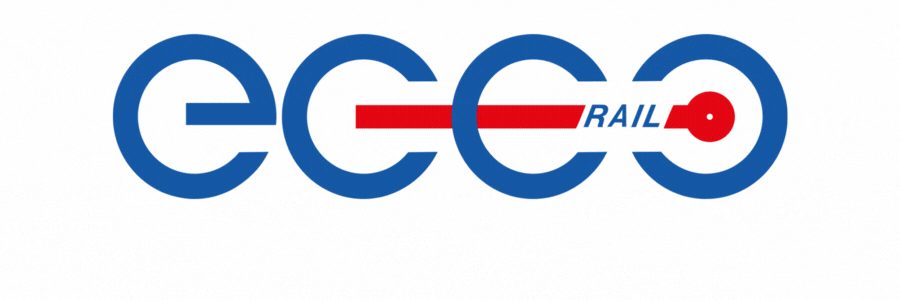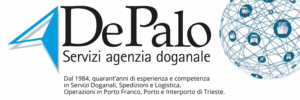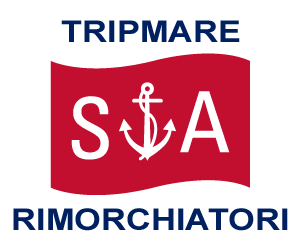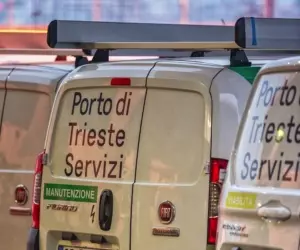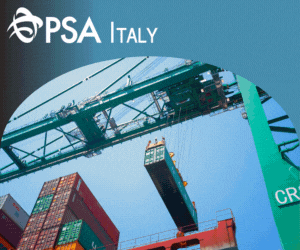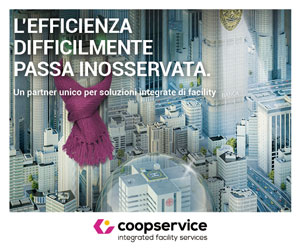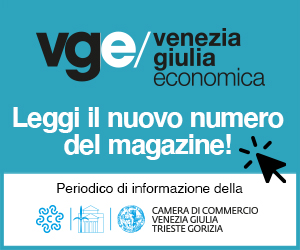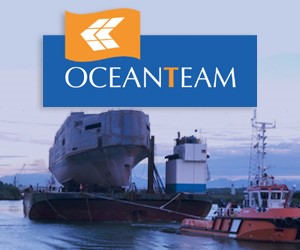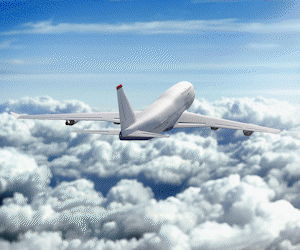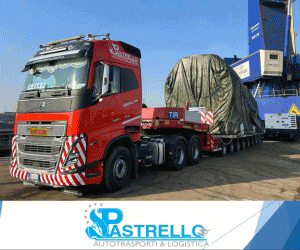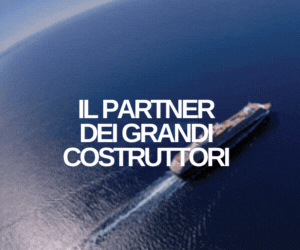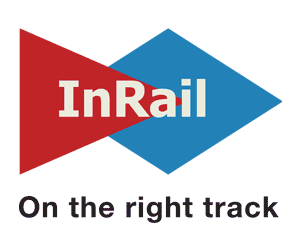TRIESTE – Collaboration Between North Adriatic Ports: the topic is back in the news after a comparison between the data of the first half of 2021, in particular between the ports of Trieste and Koper. Two protagonists of the port community hypothesize different solutions, taking a snapshot of the current reality: an international agency and coordination on environmental sustainability issues.
International cooperation will be discussed tomorrow in Cividale del Friuli during the Mittelfest. The secretary-general of the Trieste Authority, Vittorio Torbianelli, will meet with Sebastjan Šik, head of external relations of Luka Koper. But it will be discussed above all at the Bled strategic forum (near Ljubljana in Slovenia), where a panel will be dedicated to collaboration on sea-related issues between Italy, Slovenia and Croatia, with the participation of Zeno D’Agostino, president of the Port Authority of the Eastern Adriatic Sea.
Maurizio Maresca, professor at the University of Udine and president of Alpe Adria, the intermodal transport company of the Port of Trieste, has recently reintroduced the topic. He did so by commenting on a post on the Facebook page of AdriaPorts, dedicated to the accounts of the port of Koper in the first half of 2021.
«Very positive result of Luka Koper in the first half of the year. With the expansion of the container terminal and with the Koper-Divaca is a candidate solid reference to the markets of the Baltic-Adriatic corridor (also considering the choices being developed by the European Commission on the Ten-T networks that affect the North Adriatic area). However – Maresca points out – the overall result of the North Adriatic ports seems to be reduced if we think of a basic function of the two European corridors (Brenner and Koralm). So many ports that are part of the same market but unable to make a synthesis. And this despite the individual examples of Trieste, excellent in the development of the railway and of Koper, excellent in the investments in the containers».
A part of the comment is dedicated to the parallelism between what is happening in the North Tyrrhenian Sea and what would be desirable to happen – again according to Maresca – in the North Adriatic. «It is certain that in this phase if one thinks of the receptive capacity and the numbers, the ports of the North Tyrrhenian seem to assume a decisive role. On the other hand, the North Adriatic, if the countries involved were to coordinate, could play a decisive role by giving rise, as in the 1947 treaty (the peace treaty signed in Paris with the recognition of the International Free Port of Trieste, ed), to a single port system at the service of all countries, but not governed by any of them, consisting of many facilities serving the three corridors that affect the area. The instrument is that of a European port agency born from an enhanced cooperation agreement (art.20, tue) between Austria, Italy, Germany, Slovenia, Hungary, Croatia and the Czech Republic and which regulates a plurality of competing facilities.
Besides, of course, the European Commission. Today, however, these are theoretical exercises because the path of competition remains clear and each country plays its cards without a coordination plan».
Therefore, a European agency for common governance and an integrated development of the ports facing the North Adriatic. A viable solution?
More than something is already being done, as evidenced by the documents of Napa (North Adriatic Ports Association) testify. But doing more seems complicated, says Zeno D’Agostino, who instead opens the way to targeted collaboration.
«It could be done, but the border (between Italy and Slovenia, ed.) is still there and weighs heavily. In reality, we would come up against a series of constraints that are difficult to overcome. Both for taxation and port management. We are an Authority, and then there are the private concessionaires who take care of the terminals. In Koper, for example, there is a single entity. We have to make ports sustainable – raises D’Agostino – and sustainability must not become a competition weapon. The real alliance must be made on ecological transition, using Recovery Plan resources that exist for us but also for neighbouring ports. Napa, which continues to work even if it doesn’t always make its voice heard, could bring forward the theme of ecological transition. It could be worked on without touching competition issues».
Trieste-Capodistria collaboration: «An agency is needed» «Difficult, perhaps on green issues»
